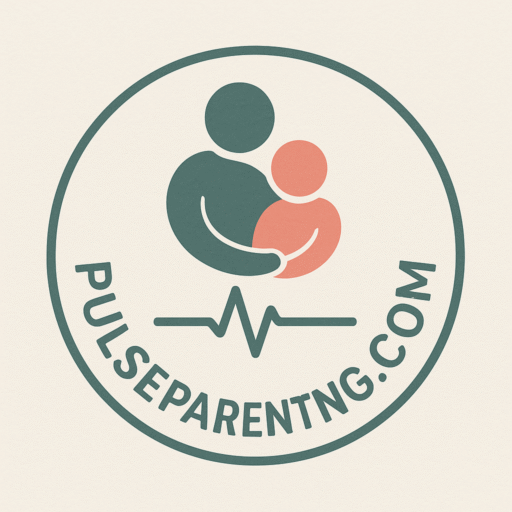When it comes to helping teens navigate anxiety and depression, one of the most powerful tools isn’t found in a therapy room or a prescription bottle — it’s found in connection. Human connection. The sense of being seen, heard, valued, and supported.
In an age of social media and increasing isolation, the quality of our relationships — with family, peers, and community — has become one of the strongest predictors of emotional well-being for young people. Research consistently shows that feeling connected can buffer against stress, reduce depressive symptoms, and even prevent suicidal thoughts.
Let’s unpack what the science says and why it matters so much.
Why Connection Matters More Than Ever
Adolescence is a time of massive transition — biologically, emotionally, socially. Teens are developing their sense of self, identity, and independence. But they still have a deep need for belonging and secure relationships. When that need goes unmet, emotional distress often follows.
A review of studies found a strong association between social isolation and both anxiety and depression in adolescents. During the COVID-19 pandemic, when social interaction was limited, rates of teen depression and anxiety soared — a stark reminder of how vital connection truly is.
On the other hand, teens who feel connected — to family, peers, school, and community — show significantly lower rates of depression, anxiety, and suicidal thinking. In one study, early adolescents who felt more connected in seventh grade had better mental health outcomes a year later. Another review of “school connectedness” found that teens who felt cared for and included at school experienced fewer depressive symptoms for up to five years afterward.
Connection isn’t a luxury — it’s a lifeline.
How Connection Protects the Mind
So why does connection have such a powerful effect on mental well-being? Researchers point to several reasons:
- Belonging reduces stress.
When teens feel that they belong, their bodies and minds relax. Connection tells the nervous system: “I’m safe.” That sense of safety quiets the chronic stress response linked to anxiety and depression. - Connection stops the cycle of loneliness and rumination.
Isolation breeds negative thinking — the kind that spirals into self-doubt and hopelessness. But relationships break that cycle, offering perspective, comfort, and new meaning. - Relationships build resilience.
Connected teens are better able to handle setbacks because they have emotional anchors. Knowing that someone cares helps them bounce back from challenges faster. - Connection reinforces healthy habits.
Teens with strong social ties tend to sleep better, move more, and engage in positive activities — all of which strengthen mental health.
The Cost of Disconnection
When teens feel disconnected — from their families, peers, or school — the consequences can be profound. Disconnection has been linked with increased depression, anxiety, substance misuse, self-harm, and suicidal behavior. It can also amplify the effects of discrimination, bullying, or trauma.
Even when support systems exist, disconnected teens often don’t use them. They may feel they don’t deserve help or that no one would understand — reinforcing a painful cycle of isolation.
It’s Not Just About Having People Around
Importantly, connection isn’t about how many friends a teen has — it’s about how supported they feel. A teen can be surrounded by people yet still feel alone if those relationships lack emotional safety or authenticity.
Connection grows through empathy, trust, and genuine care. It’s the quality of the bond that matters most — not the quantity of contacts.
The Takeaway
Connection is not simply a “nice-to-have” in a teen’s life — it’s a critical foundation for mental health. Research shows that strong bonds with family, friends, and community protect against anxiety and depression, while isolation and disconnection heighten risk.
As parents, educators, and caregivers, our role is to help teens feel connected — to themselves, to others, and to something bigger than their struggles. Because when they do, they’re not just surviving; they’re thriving.
Next in this series:
👉 “How Parents Can Build Connection with Teens Struggling with Anxiety and Depression” — practical, research-backed strategies to strengthen relationships and support your teen’s mental well-being.
📚 References
- Loades, M. E., et al. (2020). Rapid Systematic Review: The impact of social isolation and loneliness on the mental health of children and adolescents in the context of COVID-19.
Journal of the American Academy of Child & Adolescent Psychiatry.
https://pmc.ncbi.nlm.nih.gov/articles/PMC7267797/ - Jose, P. E., & Lim, B. T. (2025). The longitudinal effect of connectedness on mental well-being in early adolescence.
Journal of Youth and Adolescence.
https://pubmed.ncbi.nlm.nih.gov/37740505/ - Resnick, M. D., et al. (1997). Protecting adolescents from harm: Findings from the National Longitudinal Study on Adolescent Health.
Journal of the American Medical Association (JAMA).
https://jamanetwork.com/journals/jama/fullarticle/418231 - Chapman, R. L., Buckley, L., et al. (2022). School connectedness and depression in adolescents: A systematic review.
BMC Public Health, 22(1), 2104.
https://bmcpublichealth.biomedcentral.com/articles/10.1186/s12889-022-14364-6 - Jose, P. E., & Williams, L. M. (2022). Adolescent connectedness: A framework for understanding and promoting well-being.
Frontiers in Psychology, 13:9600165.
https://pmc.ncbi.nlm.nih.gov/articles/PMC9600165/

